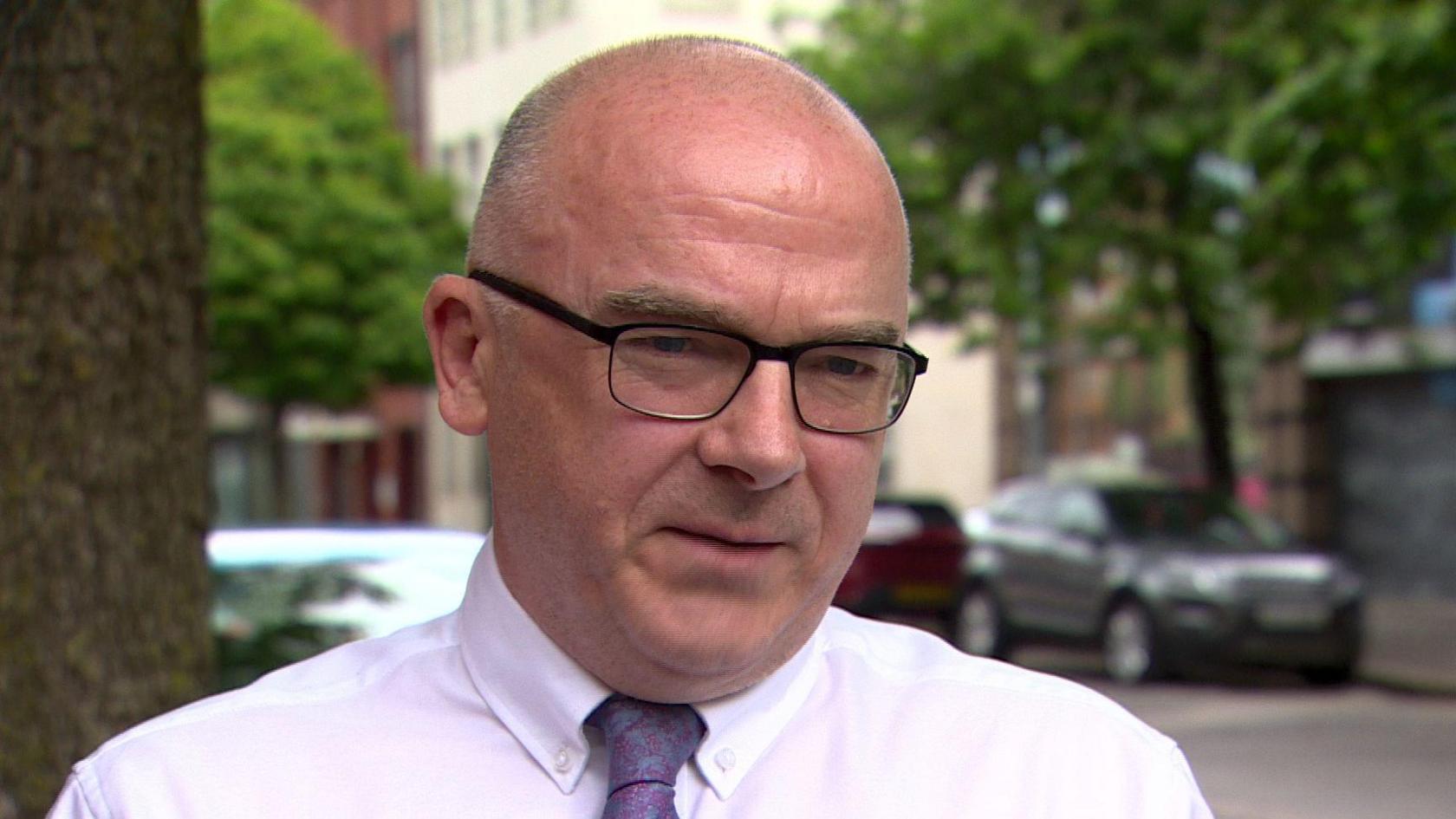'Winter of discontent' unless health pay offer improved

Nipsa general secretary, Patrick Mulholland said to "prepare, get ready, we're going to have to defend our health service"
- Published
The health minister needs to "return to the table with money" or "we are looking at a winter of discontent in the health service", the deputy general secretary of Nipsa has said.
Talks between unions and the minister are ongoing after unions rejected a renewed pay offer and said they will ballot for industrial action.
Patrick Mulholland said that talks which were due to resume on Monday "didn't move on", and that union members should prepare to "defend our health service".
The Department of Health (DoH) offered a 3.6% pay rise from 1 October, with further increases the following year, but unions objected as it would not be backdated to April as it was elsewhere in the UK.
Speaking to The Nolan Show, Mr Mulholland said health workers are being asked to engage in an "act of faith".
"Enough is enough, if we're going to have a properly run health service the starting point has to be you have to pay the people who work in it.
"If you don't pay them those people don't have any other choice they have to go somewhere else.
"We need parity and we need a commitment to address low pay in the health service," Mr Mulholland said.
Health Minister Mike Nesbitt said his department was "working in good faith" and would continue discussions "within the regrettable financial constraints" it faces.
Speaking on BBC Radio Ulster's Good Morning Ulster programme, social worker Damien Maguire said "there always seems to be an annual drama when it comes to health service pay".
"For myself and many health workers it really feels like Groundhog Day," Mr Maguire said.
"This public performance – it feels like it's not going to help in public sector workers and healthcare workers having confidence that this pay issue is going to be resolved.
"It only creates a bit of apathy, it makes us feel like we're of no real importance."
Healthcare worker Steven McFall said morale in the health service is "so low" and he is seeing the number of people applying for jobs go down significantly in recent years.
"It's going to be really hard to recruit and retain with this pay level," he told Good Morning Ulster.
On the issue of pay not being backdated, Mr McFall said it "feels like a false promise".
"I'd rather have no promise than a false promise."

In recent years, health workers have gone on strike to campaign for pay parity with colleagues in the rest of the UK
BBC News NI understands that one of a number of options the department had put to unions was a two-year award deal covering 2025-26 and 2026-27.
The pay award for 2025-26 was a "3.6% consolidated uplift" effective from 1 October 2025, but this would not be backdated to 1 April as part of this year's award.
The department proposed a 2.5% increase for 2026-27, with an added "short-term uplift" of 1.74% to compensate for pay not being backdated this year.
It is understood none of the options proposed were final and all parties are committed to finding a workable solution.
Pay parity
Health pay is a devolved matter in Northern Ireland.
In recent years, health workers have gone on strike to campaign for pay parity with colleagues in the rest of the UK.
In May, Health Minister Mike Nesbitt signed off £200m to go towards this year's pay deal but said the money would need to be found outside his department due to the financial pressures he was already facing.
Earlier this month, the minister said only half of the money needed to resolve the pay award shortfall for healthcare workers had been found.
It contradicted earlier remarks by First Minister Michelle O'Neill that Nesbitt had "found" £100m to help resolve the dispute, with the executive agreeing to put the other half required - £100m - towards it.